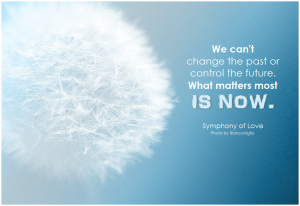Maybe you’re familiar with the term mindfulness. But do you know who it’s for, why people do it, or how to practice it?
Let’s start at the beginning. What is mindfulness?
Mindfulness is defined as:
a mental state achieved by focusing one’s awareness on the present moment, while calmly acknowledging and accepting one’s feelings, thoughts, and bodily sensations, used as a therapeutic technique.
Mindfulness has its roots in Buddhist meditation, but has evolved to include several secular variations. It has become widely accepted and used in many different settings across the globe.
The two most important words to remember about mindfulness are awareness and acceptance. Not only do we pay attention to our thoughts and feelings, but we refuse to pass judgment on them. They are what they are – they are neither right nor wrong. Rather than rehashing the past or imagining the future, our thoughts are focused only on the present moment.
But why should we do that? Read on.
Benefits of Mindfulness

Certainly there is nothing wrong with considering the past and learning from it; however, there is a big difference between learning from one’s past and moving forward, and dwelling in the past and agonizing over failures, mistakes, times you’ve been hurt or experienced loss. The latter only serves to stunt your growth and prevent you from becoming who you are meant to be.
Similarly, there is nothing wrong with planning for your future, setting goals, or dreaming big. But living in the future, worrying about what may be (things over which ultimately you may have little or no control) can lead to frustration and anxiety.
Moreover, in our modern fast-paced society, many of us are juggling more responsibilities than we can handle, and as we know too well, at some point something’s gotta give. Our “mental juggling act”
limits our ability to attend to what is really important and to enjoy our here and now. We often generate counterproductive thought and emotional patterns as a result of our modern lifestyle, leading to withdrawal from the people we love and things we enjoy (hence why success and money do not equate to happiness).
(source: Mindfulness Meditation Brisbane)
This leads to anxiety, depression, unhappiness, and out of control emotions.
Research has shown that practicing mindfulness results in medical, physical, emotional, intellectual, and relational payoffs:
- Boosts the immune system
- Relieves stress
- Lowers blood pressure
- May help alleviate depression
- Clears the mind
- Improves focus
- Fosters compassion and altruism
- Enhances relationships
- Improves behavior in children
- Reduces aggression, anger and hostility in children and adults
- Can help with symptoms of PTSD (Post Traumatic Stress Disorder)
- Encourages healthy living – may even reduce obesity
Who should practice mindfulness?
Anyone can benefit from mindfulness. Some people may need it more than others, but even if you consider yourself an otherwise healthy, happy individual, you still likely experience moments of frustration or anger, disappointment, stress, worry, regret, or overwhelm – whether it be related to work, a relationship, kids, the holidays, your weight, or any other obligations you may have.
In those times, if you learn to be aware and accepting of your present moment, you can release those worries and experience peace and relief.
How do I practice mindfulness?

What comes to mind when you think of “practicing mindfulness”? Do you picture someone seated cross-legged on the floor in a dark room, thumb and forefinger touching, repeating “Om” over and over?
The truth is, meditation is just one way to achieve mindfulness. Over the years the concept of mindfulness has been adapted to include a number of activities.
Those activities include noticing and following your breath, being still and quiet, engaging your 5 senses, offering gratitude, mindful eating, practicing yoga, and more.
Guess what: Practicing mindfulness is easy – even if you’re busy! You only need a few minutes a day, no equipment or anything. Just remember, it is a practice – it takes time, so be patient with yourself.
Wildmind offers this list of ways practice mindfulness. Check them out here.
Psych Central gives 7 easy ways to be mindful every day. Read them here.
Is mindfulness used in therapy?
Mindfulness-Based Cognitive Therapy (MBCT) is particularly useful and effective for people suffering with depression and unhappiness. I utilize this technique in my practice. Feel free to contact me with any questions you may have about MBCT.
